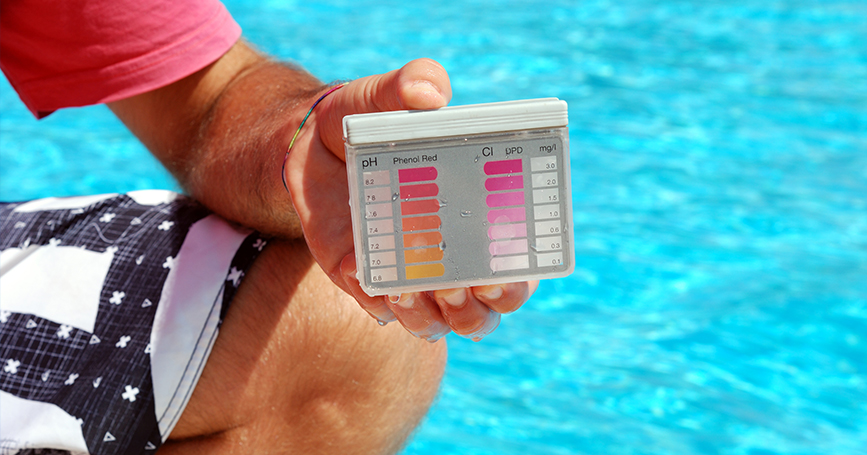When it comes to pools, we like to think we’re quite knowledgeable! We’re asked a vast array of questions daily, particularly regarding chemical treatment for pools. So, we thought we’d share a few of the most commonly asked questions. Of course we love hearing from you, so if you have any queries please don’t hesitate to contact our friendly staff.
Can chlorine prevent all water illnesses?
Yes! Chlorine is designed to kill the majority of germs that could potentially make people ill. However, sunlight, dirt, debris and human body oils can also break down the chlorine concentration. It is important to check your chlorine levels regularly to ensure hygiene, and oxidise regularly to remove the contaminants that break down chlorine.
How long should you wait to get in the pool after chemical treatment?
A sure fire way to know is to check your levels, particularly after shocking your pool. However, after one hour most of the chemicals will have safely dispersed throughout the water. Be sure to follow the instructions as directed on the label.
How often should I check my pool water?
For most pools a minimum check of once a week is recommended. Thoroughly checking levels as often as possible ensures consistency and saves you from any nasty surprises! (And potentially a lot of money.)
What is the perfect water balance?
Poorly treated water can be a health threat, whereas appropriately treated and sanitised water will provide you with a healthier and more visually appealing pool. Furthermore, out of balance water, particularly if left for too long, can cause expensive damage to the pool surface and equipment in the long run. Below is a list of our recommended water balances:
pH 7.2 – 7.8 (Ideally 7.4 – 7.6)
Alkalinity 80-150ppm*
Calcium hardness 175-250ppm
Free Chlorine 1-3ppm
Free Bromine 3-5ppm
*Depending on surface.

When’s the best time to shock my pool?
After heavy use or rain. Shock treatment is necessary when reducing sanitation inefficiencies. Contaminants such as sunblock, oil, hair sprays and gels, cosmetics and deodorants react with chlorine and break down chlorine concentration. It is generally contaminants that hurt people’s eyes and not chlorine, as is commonly blamed.
How do I safely store and handle chemicals?
We recommend storing your chemicals in a dry, clean, cool and well-ventilated area away from sunlight and children. Ensure all liquid chemicals are upright. When handling, carefully read and follow the instructions on the label. In case of spillage, flush away with large quantities of water, avoiding contact with eyes and skin. Always ADD chemicals to water, NOT water to chemicals and do not mix chemicals with one another.
Why is it important to ensure my pool water’s chemistry is correct?
By regularly checking your pool’s water chemistry, you are ensuring a healthy swimming environment for you and your swimming guests. Likewise, by maintaining water balance you are protecting equipment and pool surfaces from corrosion and damage and ensuring your pool looks sparkling clean! As a general rule, it is safer to add small amounts of chemicals, running the filter and testing the results after a number of hours. By adding large amounts, there will be bigger changes and potentially bigger problems. In the long run, regular maintenance is an efficient way to keep your pool healthy and prevent expensive repairs.





